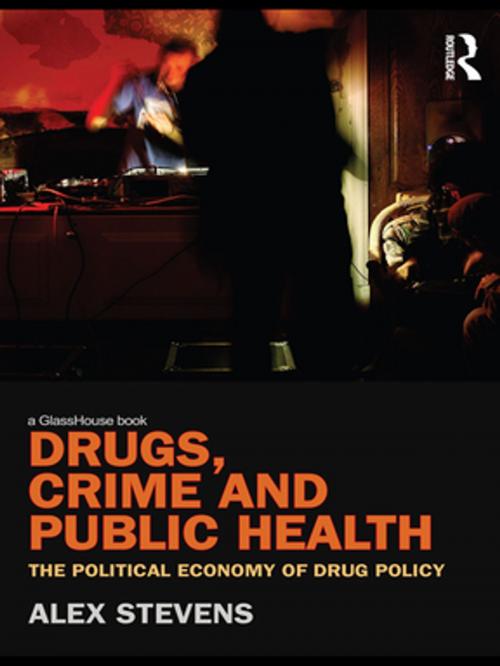Drugs, Crime and Public Health
The Political Economy of Drug Policy
Nonfiction, Reference & Language, Law, Criminal law, Social & Cultural Studies, Social Science, Crimes & Criminals, Criminology| Author: | Alex Stevens | ISBN: | 9781136918193 |
| Publisher: | Taylor and Francis | Publication: | October 4, 2010 |
| Imprint: | Routledge-Cavendish | Language: | English |
| Author: | Alex Stevens |
| ISBN: | 9781136918193 |
| Publisher: | Taylor and Francis |
| Publication: | October 4, 2010 |
| Imprint: | Routledge-Cavendish |
| Language: | English |
Drugs, Crime and Public Health provides an accessible but critical discussion of recent policy on illicit drugs. Using a comparative approach - centred on the UK, but with insights and complementary data gathered from the USA and other countries - it discusses theoretical perspectives and provides new empirical evidence which challenges prevalent ways of thinking about illicit drugs. It argues that problematic drug use can only be understood in the social context in which it takes place, a context which it shares with other problems of crime and public health. The book demonstrates the social and spatial overlap of these problems, examining the focus of contemporary drug policy on crime reduction. This focus, Alex Stevens contends, has made it less, rather than more, likely that long-term solutions will be produced for drugs, crime and health inequalities. And he concludes, through examining competing visions for the future of drug policy, with an argument for social solutions to these social problems.
Drugs, Crime and Public Health provides an accessible but critical discussion of recent policy on illicit drugs. Using a comparative approach - centred on the UK, but with insights and complementary data gathered from the USA and other countries - it discusses theoretical perspectives and provides new empirical evidence which challenges prevalent ways of thinking about illicit drugs. It argues that problematic drug use can only be understood in the social context in which it takes place, a context which it shares with other problems of crime and public health. The book demonstrates the social and spatial overlap of these problems, examining the focus of contemporary drug policy on crime reduction. This focus, Alex Stevens contends, has made it less, rather than more, likely that long-term solutions will be produced for drugs, crime and health inequalities. And he concludes, through examining competing visions for the future of drug policy, with an argument for social solutions to these social problems.















